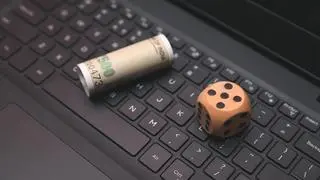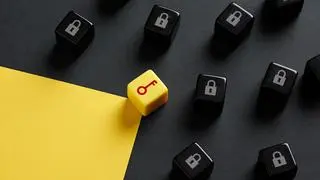The word ‘non-fungible tokens’, or NFT, has been knocking about a lot these days. While most people have heard about NFT, not many may know what it exactly is.
NFTs are basically packets of data that can be stored and transacted digitally, recorded on a blockchain that has so far been seen to represent digital creative works and files such as videos, audios, photos. NFTs can also be called digital representations of real-world objects like art, music, in-game items and videos. They are bought and sold online, mostly with cryptocurrency, and they are generally encoded with complex software. A big advantage is that anyone can verify the asset’s authenticity and ownership, thereby creating clear titles for each NFT.
Midwest Tungsten, a supplier of metal for industrial uses, recently paired a blockchain with a 14.545-inch, 2,000-pound cube of tungsten to produce a non-fungible token (NFT). Amitabh Bacchan’s Madhushala NFT collection - his father’s poem, recorded in the superstar’s own voice, grossed a total of $756,000 or ₹ 5.5 crore worth of bids. Artist Beeple’s Crossroad fetched $6.6 million on Nifty, whereas a digital collage of images by Beeple sold for $69.3 million at a Christie’s auction in March!
Valuable asset
Non-fungible tokens are an extremely valuable asset due to their unique nature. For example, a share or a bitcoin is fungible — trade one for another bitcoin, and you’ll have exactly the same thing. NFTs, however, are a “one-of-a-kind” trading card, which does not mean you can not trade one NFT for another, of course. It just means that if you trade one NFT for another, you’ll end up with something completely different.
The introduction of NFTs and the millions of dollars that they are being transacted for have raised concerns around their safety, identity and authenticity.
However, considering the humongous amounts of monies being flooded into the NFT scene, with cricketers and Bollywood icons such as Amitabh Bachchan and Salman Khan launching their own NFTs as well for purchase, NFTs have gained legitimacy over time. However, what is concerning is that there are still no laws or regulations that govern NFTs and considering the amount of time the cryptocurrency Bill took to be drafted, an effective NFT law is still a long way to go.
While India has laws dealing with cross-border transactions, such as, the Foreign Exchange Management Act (FEMA), which oversees cross-border commercial activity in India, they could find to be lacking teeth in cases where assets such as NFTs are concerned.
Under FEMA’s software and intellectual property laws, NFTs can be classified as intangible assets. However, because the specific location of crypto-assets cannot be determined, the jurisdictional issue cannot be fully addressed.
Supporters of NFT say that owing to the fact that the contractual obligations of smart contracts are performed automatically, these transactions should lead to fewer legal disputes considering the performance of the agreement.
That said, the lack of robust laws governing such digital or smart contracts, digital exchange of assets that might not be stored at one location, possible untraceable breaches, is what is perhaps still confusing NFT enthusiasts.
What are the legal issues that NFTs could create for their buyers?
Legal rights
The first concern that NFTs bring about is the right the buyer gets with the purchase. Since an NFT is a representation of an underlying work of art, its purchase might not transfer the underlying intellectual property rights to the buyer.
NFT buyers, in order to ensure that they have the licence or right to use the “artwork” must also get appropriate licences from the author or creator of these “artwork”. So to say, even after purchasing an NFT, if the buyer does not obtain rights to use the artwork, the IP will still remain with the original creator.
What is interesting is that most marketplaces for “NFT” transactions reserve rights to delete a user account or delete an NFT “moment” from its application. As per the existing laws, they, in fact, cannot be obligated to let their users know about it in advance.
Money laundering, frauds
Big money attracts criminals. India has seen a growing number of money laundering issues over the past few decades. Considering the exorbitant amounts invested in the NFT market, concerns have been raised about whether they can be used to circumvent anti-money laundering regulations and find new ways of transacting with money in ways unknown.
Because of their digital nature, NFTs can be stored anywhere, which makes their tracking and enforcement of laws quite difficult. Not only that, with technological advances happening on a daily basis, it would be difficult to predict whether a person breaking an NFT could actually be traced or caught?
Smart contracts
Smart contracts are digital contracts where clauses are written in the code and are embedded within the purchase tokens, with relevant triggers. Smart contracts mostly operate automatically when a predefined set of conditions are met with. Owing to the fact that the contractual obligations of these contracts are performed automatically, it follows that, in theory, fewer legal disputes should arise over the terms and performance of the contract. However, there is still ambiguity over the binding nature of smart contracts. Smart contracts are what govern NFT sales - making the transaction ambiguous and out of the ambit for most existing laws.
The nature of NFTs and the lack of laws around it yet, seem to leave NFTs in something of a regulatory blind spot. The legal implications of NFT ownership still remain murky, as far as “ownership” under law is concerned. It will, in all probability, take a couple of landmarks and defining court decisions to help owners and enthusiasts navigate the waters.
(The author is Managing Partner, Verum Legal, a law firm)








Comments
Comments have to be in English, and in full sentences. They cannot be abusive or personal. Please abide by our community guidelines for posting your comments.
We have migrated to a new commenting platform. If you are already a registered user of TheHindu Businessline and logged in, you may continue to engage with our articles. If you do not have an account please register and login to post comments. Users can access their older comments by logging into their accounts on Vuukle.